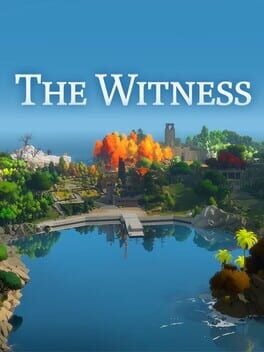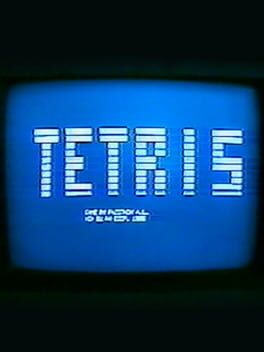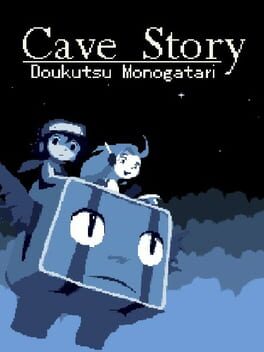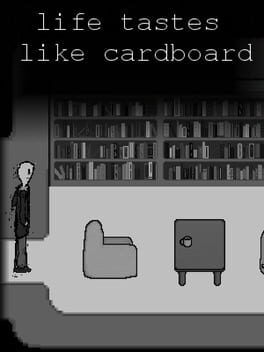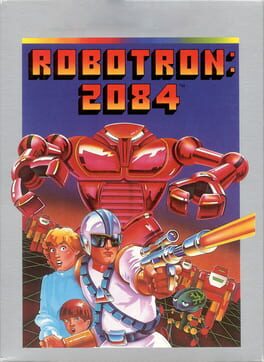Acropoeisis
9 reviews liked by Acropoeisis
The Witness
2016
In the first half of the game or so it's pretty clear that you are playing one of the best puzzle games ever created by being clearly presented with a fully transparent physical logic that will never play no cheap magic tricks and do what a lot, or all, puzzle games always seek and never reach, keep showing level after level defying your conception of what can even be done with very simple rules every single time.
Now, earlier for some, later for others, you're going to get stuck. That's fine. About that time, the game clearly reveals itself as a masterpiece.
It’s at those times that the background elements will come to the foreground. While standing still with a total lack of ideas, searching for anything to hold onto, you’ll start appreciating the colors of the day and night cycle, the flower leaves rising with your steps, the ever present synth that rarely makes a full melody, the fire crackling, the waves threatening your sausages... You’ll even give it a rest, go take a walk, go live. And you’ll return without expecting it. The map is static, you know the exact consequence of an action before the movement, with the game closed too. So you’ll go to sleep and replace the sheep to count with the level that’s been there for days, already burnt into you. Take advantage of the lack of logic to build the possibilities back.
I guess there is something about frustration and wisdom (or knowledge) here, but it’s related to a particular greater topic: inspiration. And the patience it needs. You cannot invoke it by stomping against the same wall again and again in the same way. You can only clear your head, give it time, distance and hope that when inspiration comes you will be ready to welcome it properly.
Keep dreaming those sausages.
Now, earlier for some, later for others, you're going to get stuck. That's fine. About that time, the game clearly reveals itself as a masterpiece.
It’s at those times that the background elements will come to the foreground. While standing still with a total lack of ideas, searching for anything to hold onto, you’ll start appreciating the colors of the day and night cycle, the flower leaves rising with your steps, the ever present synth that rarely makes a full melody, the fire crackling, the waves threatening your sausages... You’ll even give it a rest, go take a walk, go live. And you’ll return without expecting it. The map is static, you know the exact consequence of an action before the movement, with the game closed too. So you’ll go to sleep and replace the sheep to count with the level that’s been there for days, already burnt into you. Take advantage of the lack of logic to build the possibilities back.
I guess there is something about frustration and wisdom (or knowledge) here, but it’s related to a particular greater topic: inspiration. And the patience it needs. You cannot invoke it by stomping against the same wall again and again in the same way. You can only clear your head, give it time, distance and hope that when inspiration comes you will be ready to welcome it properly.
Keep dreaming those sausages.
S-class puzzle game if you can stomach the brutal difficulty.
The mechanics are exceptionally unique and deep but pretty compact, never changing baseline things like you or the sausages. It handles progression expertly, gradually "unlocking" said mechanics with minor layout changes; a certain arrangement of walls or some extra platform height will set apart a section 2 level and a section 5 level. The learning process is also great, giving you 0 information and letting you experiment on your own to figure out the rules. It makes for a very challenging but extremely satisfying gameplay loop.
However, there's not as much to praise about its artistic side. It pulls off the eerie theme fine and the story is passable, if a bit predictable, but there's not enough to elevate the game. The music is never in the green and sometimes pretty distracting, which is not ideal for tracks you will hear for hours as you glare at hard puzzles.
These gripes pale in comparison to the puzzles' value, though, and really just bar it from a perfect score.
The mechanics are exceptionally unique and deep but pretty compact, never changing baseline things like you or the sausages. It handles progression expertly, gradually "unlocking" said mechanics with minor layout changes; a certain arrangement of walls or some extra platform height will set apart a section 2 level and a section 5 level. The learning process is also great, giving you 0 information and letting you experiment on your own to figure out the rules. It makes for a very challenging but extremely satisfying gameplay loop.
However, there's not as much to praise about its artistic side. It pulls off the eerie theme fine and the story is passable, if a bit predictable, but there's not enough to elevate the game. The music is never in the green and sometimes pretty distracting, which is not ideal for tracks you will hear for hours as you glare at hard puzzles.
These gripes pale in comparison to the puzzles' value, though, and really just bar it from a perfect score.
Tetris
1985
It's rather telling that this ur-Tetris operates with the same mechanical elegance as its progeny. I find the consideration of Tetris - and indeed, any game - as a 'perfect game' to be trite, but from the outset Alexey Pajitnov demonstrated with aplomb that Tetris is a perfect idea. The reiteration of gameplay systems necessarily precludes Tetris from an actualised perfection -- who can judge which of its 322+ official releases is 'definitive'?
Yet, with hundreds of versions each expanding on that which came before, one would expect the very first title to be lacking most of what allowed Tetris to be a success. The Electronika 60 release is a monochrome textscape without even the barest flourishes of the Game Boy version. The shrill piezoelectric beeper's pathetic tones are an auditory agony; the ubiquitous whine of the cathode ray tube a tinnital torment. There is no bag randomiser. There is no hold. Rotation is clockwise-only. No T-spins, no back-to-backs, no combos, no garbage, no ghost. One next piece is shown. Surprisingly the hard drop is present, despite its omission from subsequent versions until 2001's Tetris Worlds.
It all matters not. In a cacophony of noise befitting a Ryoji Ikeda installation, I am dealt five Z-pieces in a row. The inconsistent speed increments befuddle me, catching me off-guard. How characters are rendered makes it difficult to consider my board's layout. I am in love. This scant realisation feels pure. I am entranced by it. It is all I have ever needed and wanted.
Yet, with hundreds of versions each expanding on that which came before, one would expect the very first title to be lacking most of what allowed Tetris to be a success. The Electronika 60 release is a monochrome textscape without even the barest flourishes of the Game Boy version. The shrill piezoelectric beeper's pathetic tones are an auditory agony; the ubiquitous whine of the cathode ray tube a tinnital torment. There is no bag randomiser. There is no hold. Rotation is clockwise-only. No T-spins, no back-to-backs, no combos, no garbage, no ghost. One next piece is shown. Surprisingly the hard drop is present, despite its omission from subsequent versions until 2001's Tetris Worlds.
It all matters not. In a cacophony of noise befitting a Ryoji Ikeda installation, I am dealt five Z-pieces in a row. The inconsistent speed increments befuddle me, catching me off-guard. How characters are rendered makes it difficult to consider my board's layout. I am in love. This scant realisation feels pure. I am entranced by it. It is all I have ever needed and wanted.
Cave Story
2004
Perhaps more importantly than making a good game, Daisuke "Pixel" Amaya has assured the world that, provided you have *a* computer (any computer still running can play this, I imagine) and an internet connection, you will always have free access to something universally cherished, something intelligent and forthcoming with ideas of simple design, and something (in its original form) untouched by the inherent evil that coats large-scale game development.
I love this game, but let's be real: it's a public service first, great game second. Give Pixel a key to a city or something.
I love this game, but let's be real: it's a public service first, great game second. Give Pixel a key to a city or something.
World of Warcraft
2004
No 1 will believe me ... But it is true. On the illidan server whence i learned the sickest, And illegal ideas, I was the Horde Side Ganker known as " the thandol span 'assaulter' ". That last word is a replacement i cant say the original anymore, it Starts with an r. Not a good word.Not good deeds. But i cannot run from my past.
